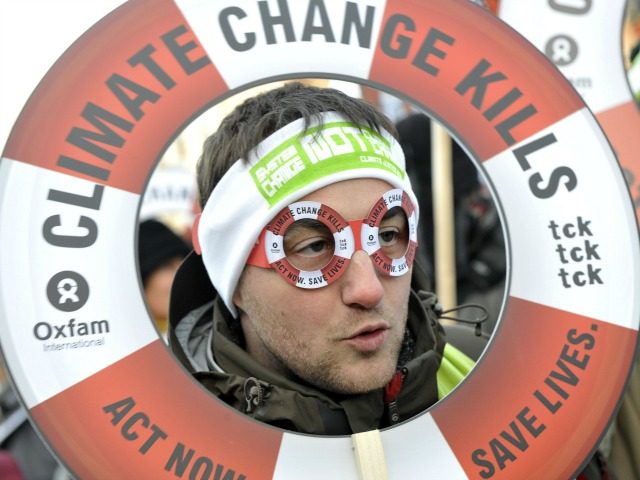In the midst of national debates concerning free speech on college campuses, the University of Colorado at Colorado Springs has opted to clamp down on students who challenge the reigning orthodoxy regarding manmade global warming.
Last week, three professors co-teaching a course titled “Medical Humanities in the Digital Age” emailed a statement to all students informing them that anthropogenic climate change is not up for debate in their course.
“We will not, at any time, debate the science of climate change, nor will the ‘other side’ of the climate change debate be taught or discussed in this course,” the professors said in their letter obtained by The College Fix.
Regarding those inquisitive students who would like to discuss the issue rather than blindly accepting the global warming dogma, the professors “respectfully ask that you do not take this course.”
“The point of departure for this course is based on the scientific premise that human induced climate change is valid and occurring,” the letters states.
The letter, signed by course instructors Rebecca Laroche, Wendy Haggren and Eileen Skahill, was sent in response to concerns expressed by several students after watching the first online lecture about the impacts of climate change.
The professors, backed by University Communications Director Tom Hutton, said that the ban on debate even extends to discussion among students in the online forums.
Students are also forbidden from using outside sources for research in the course, and may only reference materials that have been approved by the Intergovernmental Panel on Climate Change.
The decision by the University of Colorado to eliminate free inquiry came hard on the heels of the University of Chicago’s contrary decision to encourage debate and discussion, even on unpopular subjects.
In an August letter to incoming freshmen, Chicago’s Dean of Students Jay Ellison reiterated the University’s “commitment to freedom of inquiry and expression” against the restrictive political correctness codes in force on many U.S. college campuses.
Countering the trend toward less freedom of expression in higher education, Chicago stated that its commitment to academic freedom “means that we do not support so-called ‘trigger warnings,’ we do not cancel invited speakers because their topics might prove controversial, and we do not condone the creation of intellectual ‘safe spaces’ where individuals can retreat from ideas and perspectives at odds with their own.”
In other words, if you are afraid of others disagreeing with you or challenging your ideas, then Chicago is not for you.
“You will find that we expect members of our community to be engaged in rigorous debate, discussion, and even disagreement. At times this may challenge you and even cause discomfort,” the letter warned.
In an earlier report on freedom of expression, University officials cited former Chicago President Hanna Holborn Gray, who observed that “education should not be intended to make people comfortable, it is meant to make them think.”
“Universities should be expected to provide the conditions within which hard thought, and therefore strong disagreement, independent judgment, and the questioning of stubborn assumptions, can flourish in an environment of the greatest freedom,” the report stated.
The University of Chicago’s decision garnered plaudits from First Amendment advocates. “Free speech is at risk at the very institution where it should be assured: the university,” University of Chicago president Robert Zimmer said.
The university is preparing students for the real world and would not be serving them by shielding them from unpleasantness, said Geoffrey Stone, chair of the committee, law professor and past provost at the U. of C.
“The right thing to do is empower the students, help them understand how to fight, combat and respond, not to insulate them from things they will have to face later,” Stone said.
Last May, DePaul University cancelled a speech by Breitbart’s Milo Yiannopoulos after protests broke out on campus. When Yiannopoulos tried to reschedule, DePaul declared that he was banned from the University.
Follow Thomas D. Williams on Twitter

COMMENTS
Please let us know if you're having issues with commenting.